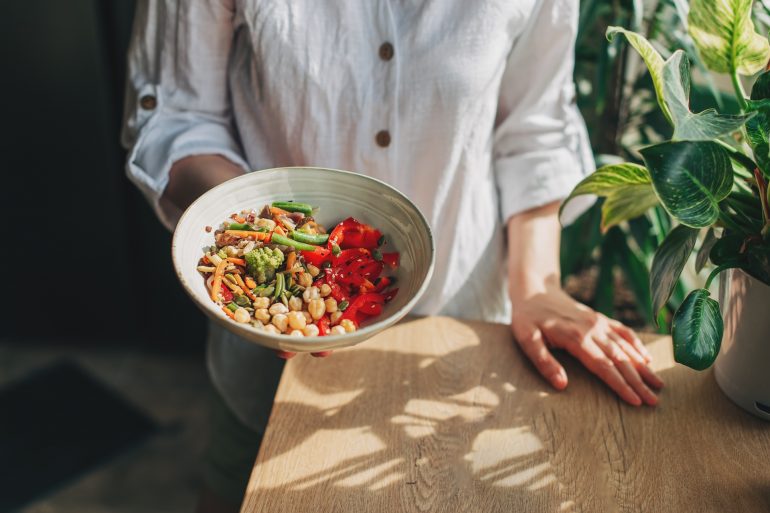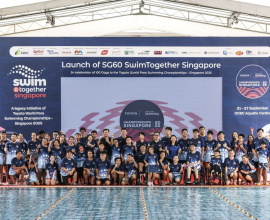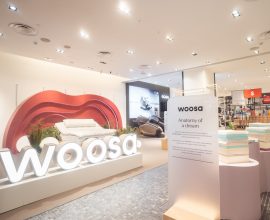With plant-based diets gaining ground as a way to reduce environmental footprints, companies are beginning to see food as more than just fuel.
In this spirit, Sodexo has introduced a new wave of plant-based menus designed by Chef Jordi Noguera, whose Spanish-inspired dishes bring a fresh, people-first approach to sustainable eating.
We sat down with Chef Noguera and Jaspreet Kaur, Sodexo’s Regional Director of Corporate Responsibility, to discuss the company’s efforts to incorporate plant-based diets at the workplace.
reimagining plant-based food.
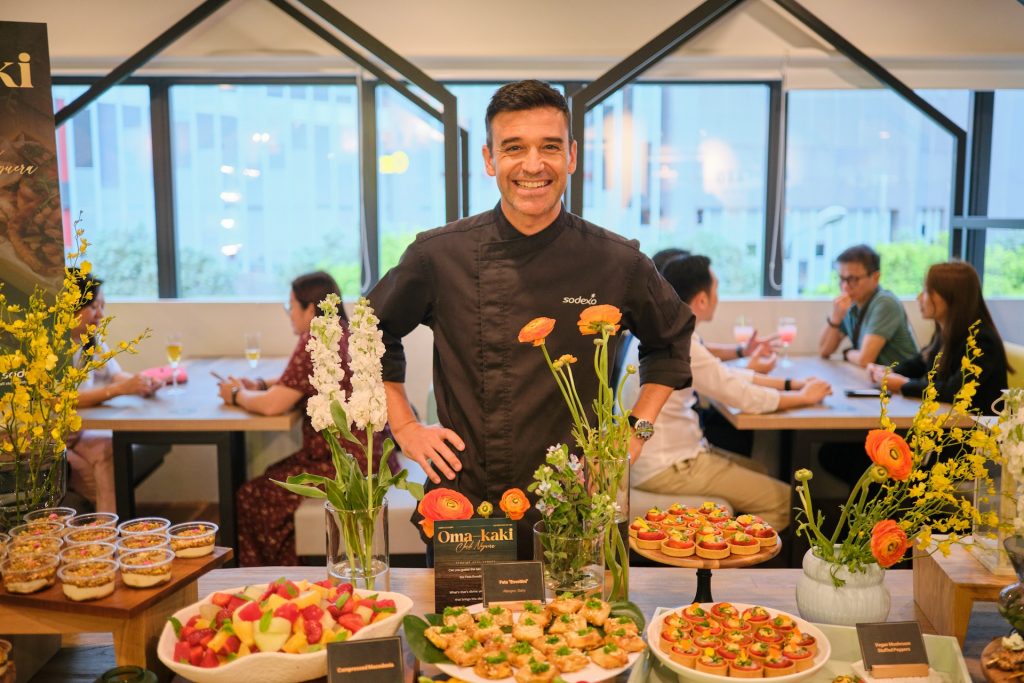
When asked about the driving force behind his plant-based creations, Chef Noguera was quick to emphasise the role of people. “People are at the heart of everything I do as a chef,” he shared.
His goal is to help people see plant-based food in a new light; just as satisfying and flavourful as any traditional meal, with the added benefit of sustainability.
Growing up in Prats de Lluçanes, a small village in Barcelona, Chef Noguera developed a deep appreciation for fresh, local vegetables, something he now brings to his culinary creations.
“The Mediterranean Diet and Blue Zones inspire my menus. These are regions known for the longevity of their people, largely thanks to their dietary choices,” he explained. By focusing on taste, nutrition, and scalability, Noguera aims to make plant-based meals accessible and enjoyable for all, from casual diners to large-scale operations.
it starts with sourcing.
For Chef Noguera and the Sodexo team, sustainable eating starts long before the food reaches the plate. “Sustainable eating begins with responsible sourcing,” Noguera explained. At Sodexo, the focus is on local, in-season produce with smaller environmental footprints. This means buying fresh food directly from regional producers, reducing both transportation emissions and costs.
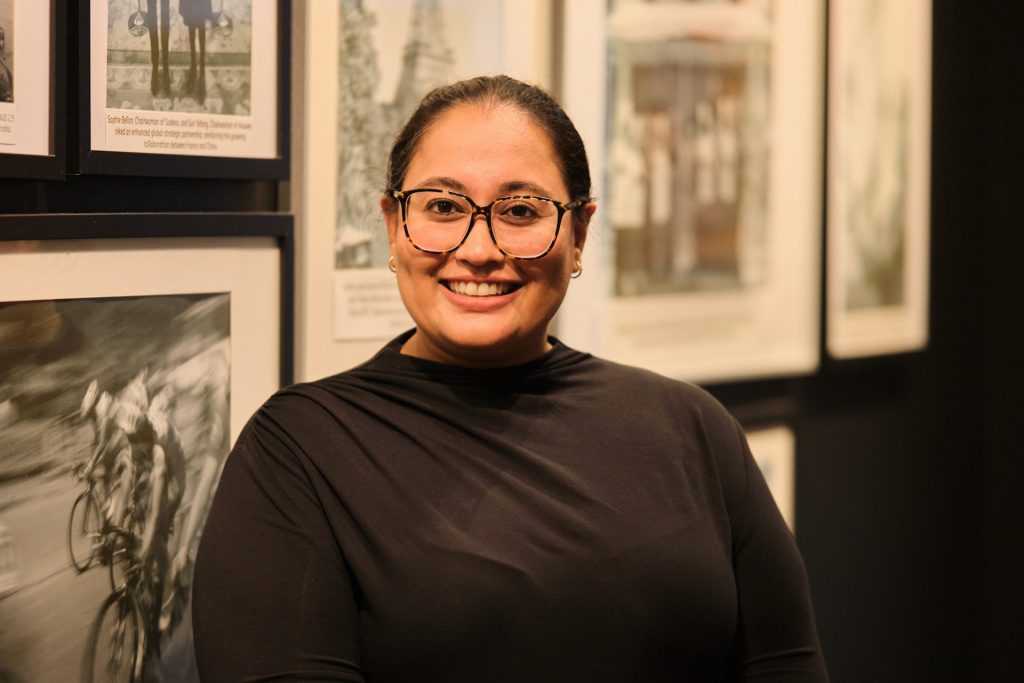
Jaspreet Kaur elaborated on how Sodexo kitchens take sustainability further by minimising waste and maximising flavour. “Our chefs are constantly innovating, creating recipes that reduce food waste, all while planning menus that align with our goal of cutting food waste by 50% by 2025.” The team’s vision for sustainability isn’t limited to just swapping meat for vegetables; it’s about thoughtfully crafting meals that make the most of every ingredient.
making sustainability affordable.
While sustainable sourcing sounds great, it often comes with the perception of higher costs.
However, Kaur was quick to address this: “Many people are now willing to pay a bit more for what they consider to be sustainable and nutritious. But at Sodexo, we’re also committed to keeping costs down by prioritising local ingredients, which not only cuts transportation costs but also reduces our environmental footprint.”
Chef Noguera’s approach to sustainability isn’t about choosing expensive alternatives but about elevating overlooked ingredients. “It’s about intentionality,” he said. “Take something like peppers, leeks, or potatoes. Simple, affordable ingredients that, when used creatively, can be transformed into something remarkable.”
Oma-Kaki.
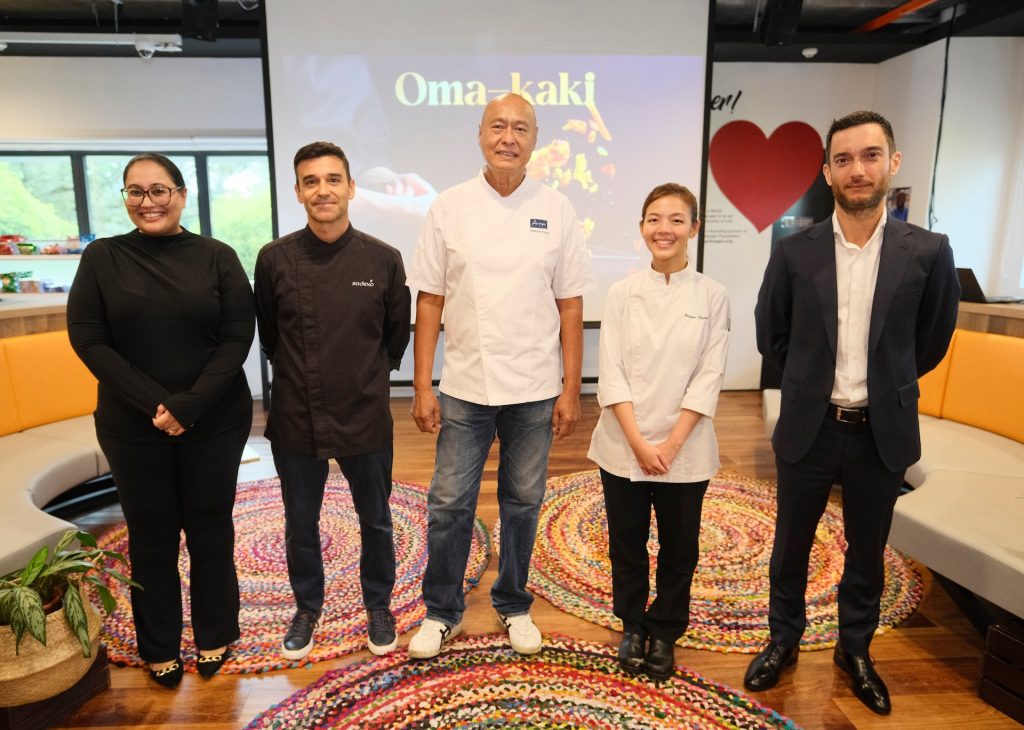
This is where Oma-Kaki comes in, a playful combination of “kaki,” the Singlish term for “friend,” and “omakase,” the Japanese concept of the chef’s choice. As Kaur explained, “Oma-Kaki is part of our effort to create food experiences that bring people together, encouraging collaboration and community in the workplace.”
For special occasions, such as International Women’s Day or Earth Day, Sodexo teams up with renowned chefs to design themed menus. “For Earth Day this year, Chef Jordi is highlighting the importance of sustainable eating through his plant-based Spanish-inspired dishes,” Kaur shared. These meals aren’t just about nourishing the body but about sparking conversations and connections among colleagues.
a future of sustainable eating.
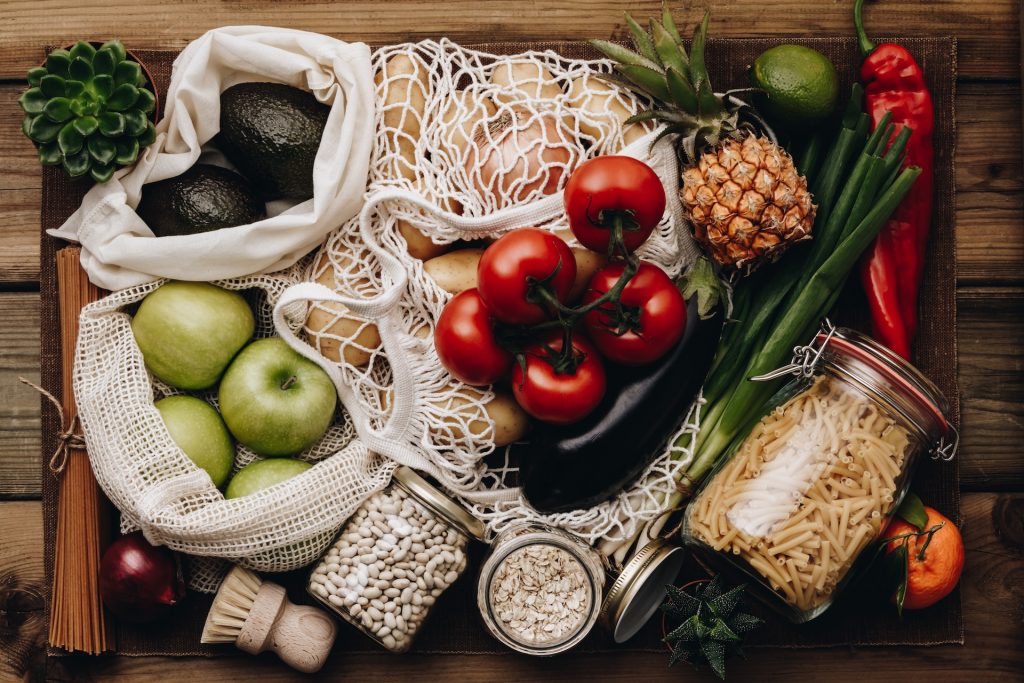
Sodexo is part of a broader movement that includes partnerships with non-governmental organisations (NGOs) and collaborations with local governments. Kaur highlighted Singapore’s Farm-to-Table (FTT) Recognition Programme as an example. “One of our cafés was recognised earlier this year for sourcing at least 15% of its produce locally,” she said.
Beyond Singapore, Sodexo’s efforts extend to Malaysia, where the company ensures that 100% of its palm oil purchases are certified by the Roundtable on Sustainable Palm Oil (RSPO). “This means rainforests and important ecosystems remain protected,” Kaur explained, “and worker safety is prioritised during the planting and harvesting process.”
From this, Sodexo has shown that sustainable eating and plant-based diets can create ripple effects far beyond the plate.
Loved this article? Check out these 12 thrift shops in Singapore for fashionable & sustainable bargains, or head to these 9 flea markets in Singapore!

